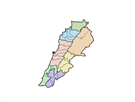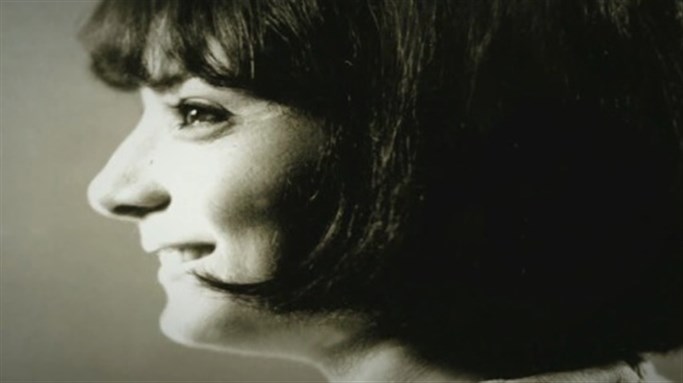[This is Part 3 of a translated transcription of a series of interviews conducted by the author with Leila Khaled during the summer of 2007. Click here to read the Introduction to the interview, here to read Part 1, and here to read Part 2.]
The 1960s were particularly formative for many activists and thinkers in the Middle East, Leila Khaled among them. It was the high point of the Arab Nationalist Movement (ANM), one of the major political parties of the period. Many of its members would splinter off and develop new organizations, including the Popular Front for the Liberation of Palestine (PFLP). This decade also marked important shifts in the nature and trajectory of the Palestinian-Zionist struggle, including the formation of the Palestine Liberation Organization (PLO) in 1964 and the Israeli occupation of East Jerusalem, the West Bank, and the Gaza Strip in 1967. While touching on these issues, Leila Khaled’s recollection of the 1960s highlights two important dynamics of this period. On the one hand, many politicized and mobilized individuals felt that “civilian” political work was no longer enough; they took up arms and joined the “resistance” or “military” wings of political parties and other organizations. On the other hand, in addition to the struggle for national liberation, women like Leila Khaled were also embroiled in the struggle against patriarchal norms both within her family and within her political organization.
In 1963, as a result of not being able to afford attending college anymore, I moved to Kuwait after having applied to be an English teacher in the intermediate level in a boarding school in the desert. In 1964, the Israelis bombed a dam project on which the Syrian and Jordanian governments were cooperating. Fellow teachers were astonished at the fact that I was discussing this matter with them. It was something they did not care for. The headmaster of the school met with me to inquire as to the nature of my discussions with the other teachers. Her line of questioning was quite reminiscent of the type I experienced at the Dean’s office at AUB.
In 1966, the Arab regimes dealt the ANM a political blow when many of its members were expelled from countries like Kuwait. My brother was driven out of Kuwait and so I was the only one supporting my family at this time. But I had to do something to stay politically engaged. The 1967 Israeli invasion and occupation created a new reality and possibility. I organized a few people and began to gather donations for the fighters regardless of political allegiance. I told my students in class that another catastrophe had happened and that we had a duty to do something. I was constantly trying to mobilize the students and teachers. There was a radio station at the school. I organized the students to begin a program about Palestine. The entire atmosphere was supportive of the Palestinian issue, and donations were constantly forthcoming.
At the end of 1968, while in I was in Kuwait, Shadya Abu-Ghazaleh became the first martyred woman in occupied Palestine since the 1967 occupation. This was a major trigger for me. Many other women were arrested at the time. Aisha and Rasmiyya `Ouda, `Aida Su`ad, Fatima Barnawi, these were the names of the first women to be arrested. I followed their trials and they were saying that in spite of the their physical and sexual torture, their honor was their land not their body. Amina Dahbour went with a group on a military operation against an El Al plane in Zurich in 1969. Women were fully involved in the struggle: some were arrested, some were martyred, and some took part in operations. I wanted very much to be one of them. That motivated me and convinced me that it was time to leave teaching. So in my mind I wanted to go to Palestine.
In 1969, I informed my mom that I was going to Jordan to work in the PFLP military bases and training camps. She told me that I could go when the men were finished. I told her to remember that when she was expelled from Palestine the men were not kicked out before the women. Back then, she had told us that we had to go back to Palestine and that we had to work for that. For me, all my work up to that point, including my desire to go to Jordan, was part of the work that I needed to do to get back to my home in Haifa.
My mother had opposed my and my sisters’ involvement in the ANM. I was often spanked for attending meetings at a young age. Once I went to a meeting in my nightgown because I snuck out of the house after convincing my mother that I was staying home for the night. My commander was astonished at my appearance and my colleagues were not fully accepting of me. This incident was a particular challenge because I wanted to practice my membership and be a part of that movement. It was not only political but also personal. In that meeting I was criticized for my actions. This criticism made me think critically about what was happening. I considered it a sacrifice because the other members considered my behavior to be beyond the pale of acceptability. I was very annoyed. I wondered why they did not appreciate that I was fighting against my mother. I was always against older traditions and the city was very conservative. That was a turning point in my life. I realized that I was simultaneously discriminated against in my life and in my family. I had to prove myself. Eventually, I managed to gain my mother’s acceptance. But it was only with the support of my father as he reminded her that we were all driven out irrespective of sex and so we should all work to go back regardless of our sex.
Click here to read the Introduction to the interview series.
Click here to read Part 1 of this interview.
Click here to read Part 2 of this interview.
Click here to read Part 4 of this interview.
![[Center: Leila Khaled. Image from unknown archive.]](https://kms.jadaliyya.com/Images/357x383xo/leilacamp.jpg)

















